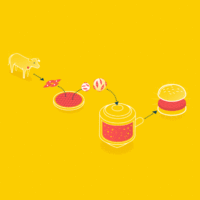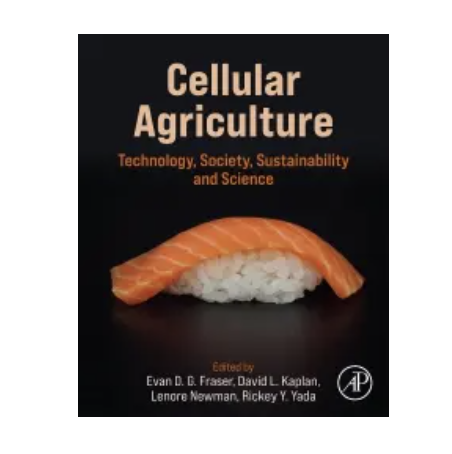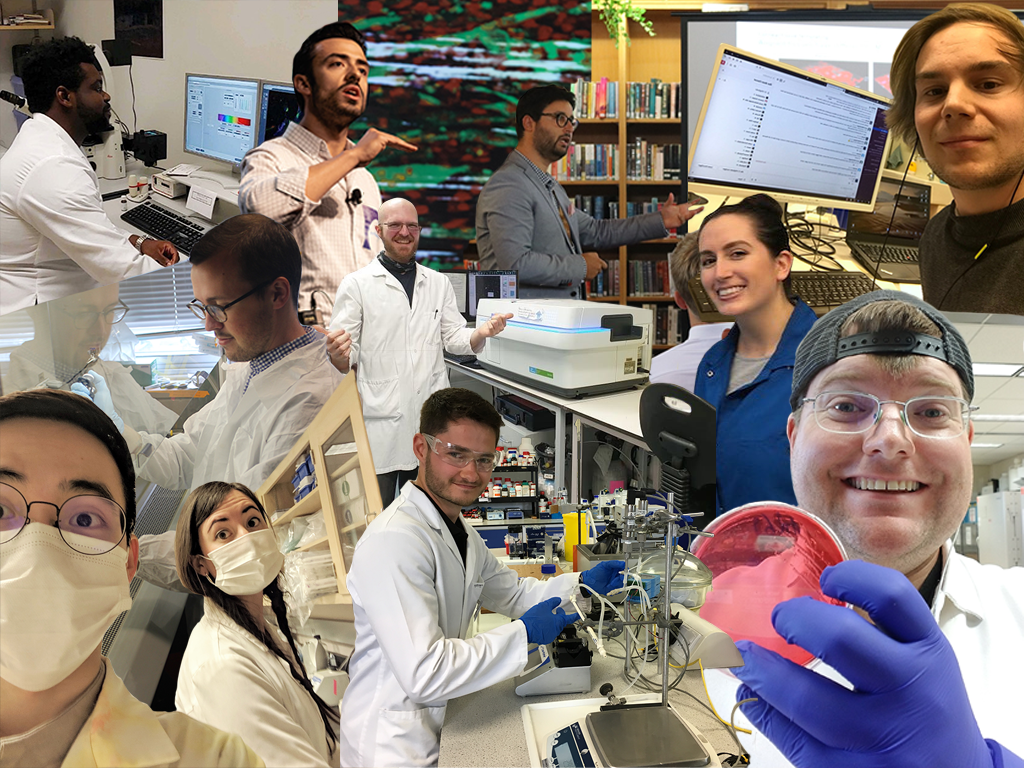- Overview
- Background
- Updates
Overview
Cost and scale are major blockers to cellular agriculture's success, but they are complex technical and economic challenges. Artificial intelligence (AI) and machine learning (ML) techniques could help to accelerate much of this work, but there is very little public literature on the various applications and benefits. Given the potential exponential impact of AI/ML, New Harvest and Alberta Machine Intelligence Institute (Amii) launched the AI in Cell Ag Initiative.
AI and ML are underutilized tools in cell ag with very little public literature. New Harvest and the Alberta Machine Intelligence Institute (Amii) decided to change that.
A team of cellular agriculture, biology, and machine learning scientists surveyed the opportunities for ML techniques to address technical and economic challenges in cultured meat. Read the preprint here!
Next, a dedicated researcher, cross-appointed to New Harvest and Amii, will tackle a project applying machine learning to cellular agriculture. Read more and apply here!
Updates
July 22, 2024: Applications are due for the Machine Learning in Cellular Agriculture Residency.
May 2024: The article is shared as a preprint while in the peer-review process.
January 2023 – April 2024: A team of cellular agriculture, biology, and machine learning scientists complete a review article surveying the opportunities for artificial intelligence (AI) and machine learning (ML) techniques to address technical and economic challenges in cultured meat.
December 2022: New Harvest and Amii announce the AI in Cell Ag Initiative after receiving funding from Schmidt Futures.

Collaborators
This initiative was conceived of and carried out in partnership with Cam Linke of Alberta Machine Intelligence Institute (Amii).
The publication is authored by Breanna Duffy1, Michael Todhunter2, Jubair Sheikh3, Ruchika Verma3, Rikard Saqe4, Kevin Shen4.
The publication benefited from the expert reviews of Zach Consenza from the Lawrence Livermore National Laboratory; Sofia Giampaoli, Animesh Acharjee, Ana Velez Rueda, Jessica Carballido, and Leandro Sommese from Alt Atlas; Roy Nadler from Google Research; and Amin Nikkhah from Tufts University.
The publication built upon the initial work of New Harvest Research Fellow (and first publicly-funded AI in cell ag researcher!) Zachary Cosenza and Dr. Michael Todhunter. You can check out their work here.
A special thank you to Evan Rapoport for his facilitative leadership on this project.
Donors
The project is supported by Schmidt Futures, a philanthropic initiative founded by Eric and Wendy Schmidt.
1New Harvest
2Todhunter Scientifics
3Amii
4University of Waterloo
See More Initiatives

Safety Initiative Phase III: Precompetitive Collaboration on Safety Research and Methods Development
The Cultured Meat Safety Initiative (CMSI) is a joint initiative between New Harvest and Vireo Advisors aiming to address critical technical, methodological, and informational challenges related to evaluating the safety of cultured meat (CM) products.
CMSI involves the convening of diverse stakeholders, including industry, governmental scientists, regulators, academic researchers, and others. Gaining such varied perspectives advances public knowledge and the practice of food safety for CM products by identifying and addressing data gaps. Research conducted to develop data and methods build the necessary support elements for the emerging ecosystem, which can raise regulatory and consumer confidence, support industry efforts toward commercialization, and improve the efficacy of evaluation processes of regulatory safety reviews.
Building on progress from Phase I and Phase II of CMSI, New Harvest and Vireo Advisors are now working to convene diverse stakeholders to create the infrastructure for shared knowledge, methods, and data that address the priorities identified in Phase I and II. Our long-term goal is to coordinate and launch regional efforts to develop and validate analytical methods for CM safety analysis and use these methods to generate datasets that can be made publicly available to support transparent food risk assessments and policy-making processes.

The Foundational Cellular Agriculture Textbook
Cellular Agriculture: Technology, Society, Sustainability and Science was designed to be the go-to reference for everyone in cellular agriculture - the textbook found in every company’s office, in every university lab, and in every aspiring student’s backpack.
The text provides a state-of-the-art review of cellular agriculture technologies, presenting foundational information with practical application insights. There are chapters on regulatory and policy issues, as well as reviews of the sustainability challenges of alternative proteins.
It is the first resource of its kind to take a practical approach to review the design, feasibility, and implementation of cellular agriculture techniques. With additional chapters on life cycle analyses and ideal transition scenarios, this book provides a resource for aspiring technology developers and academics alike seeking evidence-based assessments of the industry and its disruptive potential. The textbook was written by industry and academic experts for a balanced perspective of the field today and to inspire and shed light on a path forward.

The New Harvest Fellowship
The New Harvest Fellowship Grant is for forward-thinking graduate or postdoctoral researchers in cellular agriculture who want to be leaders in the field. The fellowship provides dedicated research funding, an international support system, and leadership opportunities. Beyond just research funding, the overarching goal is to empower future technical leaders in the field.

